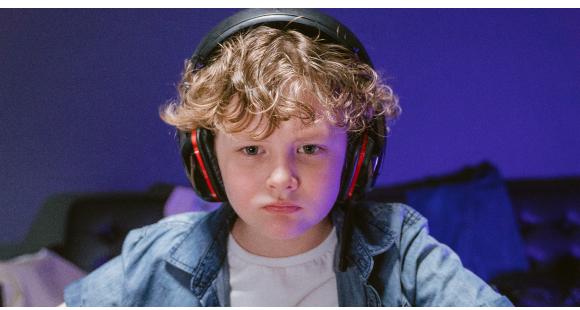Following the pandemic, as we witness our kids and teens using screens more frequently to play video games, many parents are noticed becoming concerned about their kids’ withdrawal from daily activities including school, academics, eating, playing, and interacting with others. Video game playing is a common and enjoyable activity for teenagers. However, there are still some young people who struggle to limit their gaming time. We all know that addiction to anything is terrible, and even a regular gaming routine may sometimes be detrimental to your child’s mental well-being. Gaming on screens for an extended period of time can have an impact on a child’s physical and mental health.
Today, Dr. Venkatesh Babu G. M., Consultant in Mental Health and Behavioural Sciences at Fortis Hospital, Bannerghatta Road, will share some insights on how gaming addiction actually affects your child’s mental health.

What are the risks of becoming entrapped in online gaming?
Online gaming can give kids a feeling of retreat from the realities of the outside world, and some games’ elements of culture can make kids feel like they belong to a group. But without the basic instruction on what games to play or when to play them, kids may incur considerable problems. According to Dr. Venkatesh, “The risk factors which make someone prone to online gaming involves low self-esteem, poor support system, perceived loneliness, impulsivity, body image issues, low self-control and unregulated anxiety.”
Do violence or killings in games like PUBG and Fortnite cause mental health issues?
Games that are violent, such as PUBG and Fortnite, can make children think, feel, and act aggressively, which can be bad for their mental health. These can have a lasting imprint on young children’s minds. As per Dr. Venkatesh, “Children imbibe from a lot of learnt behaviors. Being exposed to a lot of violent behaviors and indulging in acts of violence as a form of accomplishment or need fulfillment, would lead to the conditioning of real-world human behavior and its appropriation of violence as an acceptable non-verbal expression and at times expressed as entitlement in human exchange.”

How does gaming affect children’s mental health?
Dr. Venkatesh continues to explain, “Gaming has both positive and negative influence on a child’s mind. It would lead to the development of self-esteem and self-expression but if done unregulated, would lead to a false sense of esteem, poor emotional regulation, high impulsivity and limited social skills.”
What is an Internet Gaming Disorder?
Internet gaming disorder (IGD) and unsafe online behaviour are common in the current digital age, and adolescents are particularly susceptible to these unforeseen problems. Children and teenagers are vulnerable to a variety of mental health issues linked to long-term Internet gaming from an early age, such as depression, social anxiety, and loneliness. “Internet gaming disorder is a form of behavioural disorder with extreme, poorly regulated indulgence in gaming which is persistent and recurrent to the extent that it starts hampering the child’s daily work, play, academic and other activities,” says Dr. Babu.

How can parents protect their children?
Parents occasionally work a lot. Using a device, parents interact and engage with the youngster. Children begin to develop an addiction to playing video games and watching videos online first in this way only. Online games provide children with excitement and thrills, which encourages them to play more. However, there are still many things you can take to stop online gaming addiction from happening, which is a genuine issue for parents. “The key to protect children is to teach regulation and not abstinence. First of all, it is important to engage with the child in understanding the problem by asking them to reason their behavior and rationalising them than just doing a blanket correction. It is important to engage the child in green time or non-screen time vs screen time by the parents and other family members productively and pleasurably. The parents should indulge in educating the children about digital behavior, safety behaviors, possible abuse and its overall impact for which they must be friendly with technology use. It is important for parents to regulate their own screen usage time when educating their child because children learn by modelling. Finally, set reasonable rules and boundaries with a strong reinforcement towards any positives by the child,” exclaims Dr. Venkatesh.
For kids and teenagers, gaming addiction can be a very significant problem that lowers their overall quality of life. Therefore, keep in mind that, despite how challenging it may be, we want our children to grow up to be successful, content people, even if that includes making tough calls about how they use devices while they are growing up.
Also Read: World Breastfeeding Week: Understanding the benefits of breastfeeding for mother and child



